It’s time for this week’s Q and A Wednesday – a chance to ask your questions about writing to an all-star cast of author volunteers. This week’s guests are Donna Gephart, Cynthia Lord, and David Lubar!


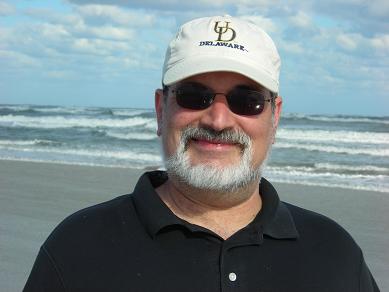
Teachers & librarians – Feel free to ask your questions in the comments. It’s fine to ask a general question or to direct one directly to a specific guest author. Our published author guests have volunteered to drop in and respond when they can.
Guest authors – Even if today isn’t a day you specifically signed up to help out, feel free to answer any questions you’d like to talk about. Just reply directly to the comment.
Got questions? Fire away!

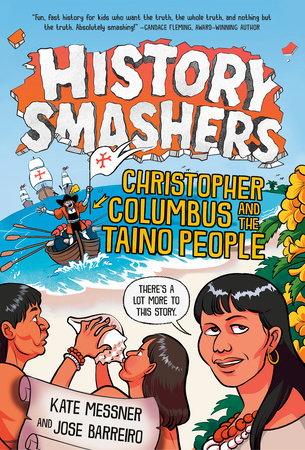
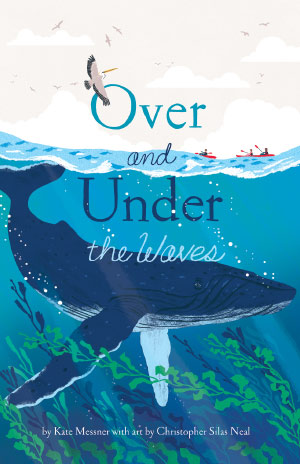
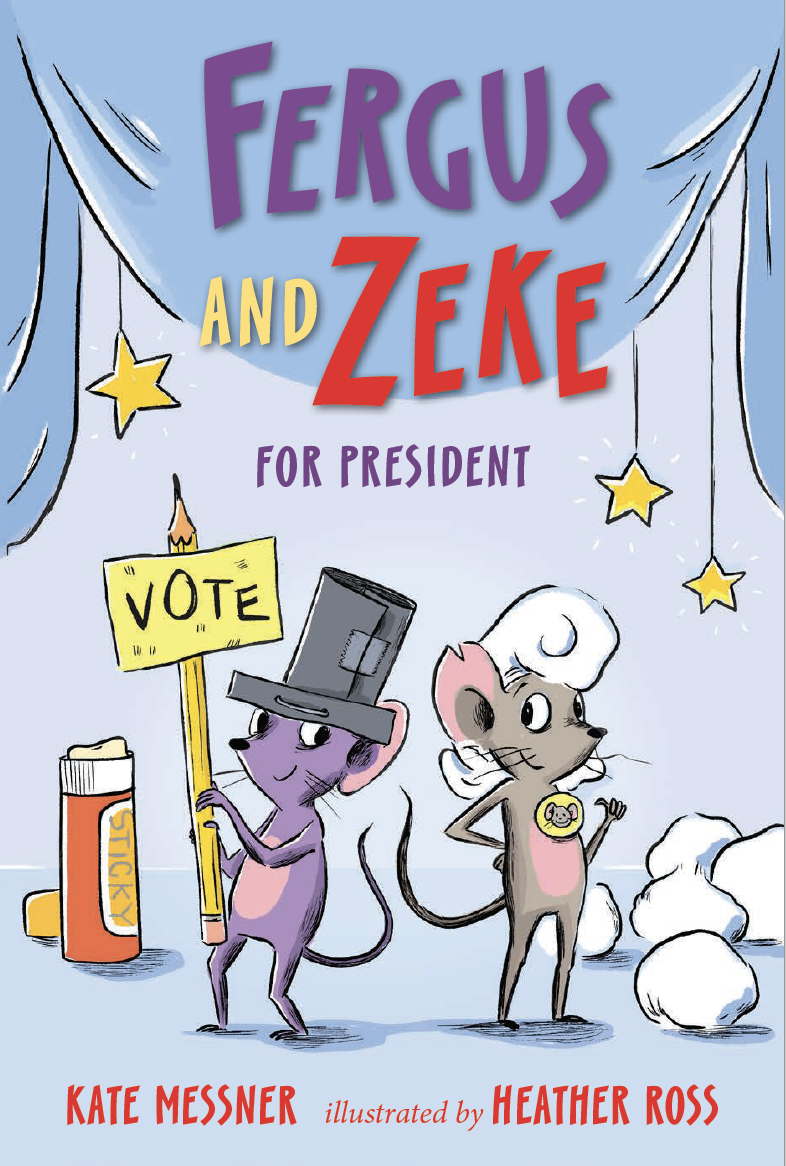
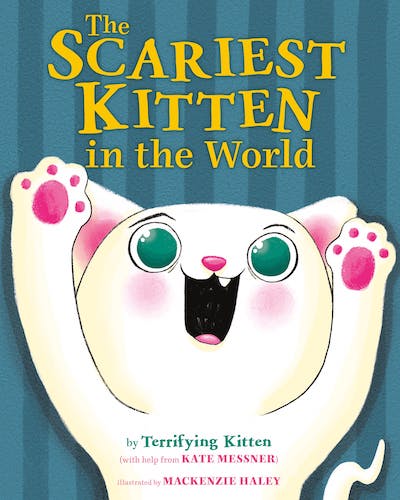
Good Morning, and thank you for taking the time to answer questions. I have a general question for all of you. Are writing contests worthwhile for a new writer, or is it better to submit stories to journals for publication? If a writer enters a story in a contest, can they submit the same story for publication? Thank you!
Good morning. One crucial thing is to distinguish between contests and scams. Some contest only exist to sell services or anthologies. RIght after college, I entered a short-story contest run by an agency that had a full page ad on the back of a writer’s magazine. They responded to my entry with the news that it was “almost” publishable. But, for $300.00, they would be happy to fix it and help me get it published. Alas, that turned out badly.
Wendy, I’ve found contests to be a great boost to me early in my career in terms of confidence in my work. When I won a contest for humor writing many years back, I was so excited, I jumped up and clonked my hubby in the chin so hard, he almost needed stitches. So, yes, contests can be a great way to boost confidence and build some writing credits when they are legitimate. Just be careful of who’s around you when you find out you won!
Hi Wendy,
I think a lot depends on the contest. Some contests have a prize that includes publication in some form, and that might hinder your ability to sell the work elsewhere. It would depend on several factors, including how much of the work is published. I would read the fine print to see who owns the rights to the entries, too. Are you giving up any rights to that work if you win? You’d want to weigh all that in your decision.
I sold my first book quickly, but then it sat at the publisher for 2 years due to one thing and another. Those two years really ate away at my confidence. At a writerly low ebb for me, I sent off the beginning of my second book to two contests that only required a chapter or two and didn’t impact my rights to the work. One of the contests is no longer around (though David Lubar was one of the judges!), but the other was the SCBWI Work-in-Progress grant. My pages won both contests, and it gave me a boost I needed at a time that I really needed one to keep going.
So for me, the question of “worth it” depends on what you want to get from the experience, weighed against what (if anything) the contest requires you to give up.
This is exactly what I needed to hear today. I am working on revising four short stories to submit to Glimmer Train. Are any of you familiar with this literary magazine?
Sarah, I’ve never submitted to Glimmer Train, but it is certainly well known. Best of luck!
Hi Cynthia, Did the publisher keep you posted on the delays with your first book or did you have to call and ask about the status. How did that change your approach/mindset on your next novel?
Hi Keith! I had to call and ask. It was a case of the book being scheduled on a certain publishing list and then it was moved to another list a year away (twice) due to things outside my control. It happens in publishing sometimes, but as a first time author it was especially hard. It’s important not to tie your sense of self-worth as a writer to the publishing world. It’s hard not to do that, but it’s ultimately damaging. So with each book, I’ve tried to keep that in mind.
Thank you for your help and advice!
I actually have two questions. Is there any rule of thumb as to how short is too short for a chapter?
What are any thoughts you have on self-publishing/
A chapter can be a single word. That would be a bit of a gimmick, of course, but I’m pretty sure I’ve done it. In one of my novels, after a character had lifted weights for the first time, the next chapter consisted of nothing except the word “Ow,” repeated several dozen times. (Also a bit of a gimmick, but it shows that there are no rules for chapters.) I often break up a long chapter, for the reasons Cynthia talks about in her second paragraph. I try to end each chapter on a cliff hanger, but that’s a stylistic decision, and not a requirement.
Those were my same questions 🙂
Chapters can be as long, or as short, as they need to be. Some books have extremely short chapters, when it’s warranted to create quick pacing. Do what works for your story/book.
As far as self-publishing, think hard about what your goals are. The really good thing about traditional publishing are the layers of excellent editorial feedback that makes a good book much, much stronger. And the marketing muscle gets your book in hands far and wide. That said, if you want to self-publish so your book is available for friends and family and a smaller audience, that’s a good option. Or if you have a strong platform already built and you hire professional editors and designers and marketers, then it could work out well, but those things are very expensive. An example of self-publishing working well is the case of Becca Puglisi and Angela Ackerman, who created The Emotion Thesaurus. They had built a big fan base/platform with their site, The Bookshelf Muse. They hired professional designers, etc. And they had many people read their early drafts to ensure accuracy. They also created a book that filled a need. So, sometimes self-publishing can work, but I’m still a big believer in the rigors of traditional publishing to create a high quality book and get it in many hands.
First of all I want to thank all of you for TeachersWrite. I stumbled across your site and it’s become a wonderful, inspiring part of my summer. It also has me writing regularly–a HUGE summer goal!
My question is about revising/editing on the computer. I love the speed of typing and capturing my thoughts as they spill out, but have concerns about the editing process. I tend to change many, many things as I write and again when I revise/edit. If I’ve written something long hand, I have a record of changes—it may be a mess, but more than once I’ve resuscitated something ( a passage, wording, etc.) that I’ve removed during the revising/editing process. (It’s also a wonderful visual of the creative process!)
On the computer, you don’t have that kind of record. Cutting, pasting, and deleting are pretty permanent. I’ve taken to creating a new document to hold cut passages, or else pasting them at the very end of the work but I still lose some more subtle changes. Does this concern anyone other than me? Have you come up with a brilliant solution? Thoughts?
Molly — excellent question. It sounds like we have similar processes. I do a lot of fast, sloppy passes. Whenever I feel I’ve made significant changes, I save a backup with a new name (title plus date plus an extra letter — a,b,c, etc) But there will be losses. I was only recently made aware of this when I took a class in stand-up comedy. The instructor told us to work in a notebook for that very reason. But I prefer to use a computer. So I would print out each new version, and revise on it by hand. (This works fine for short things, but would be difficult with a novel.) There’s one thing that takes a bit of the pressure off. Once in a while, while working on more than one project, I’ve accidentally revised an older version. When I figured out my mistake and compared the two versions, I’ve found that the changes in both were EXACTLY THE SAME. This doesn’t mean you or I will never lose a great sentence and be unable to recreate it. But it means it won’t happen as often as we fear.
Reason: Molly’s first paragraph – in the words of the character played by Leo DeCaprio in Catch Me If You Can… “I concur.” Over the past couple of years, due to my terrible organization, I have been saving each draft in a different folder along with sequential numbers. Thank you.
I do what you and David do and have a “Bits and Pieces” file where I paste deleted passages that I want to save. It makes cutting them easier if they aren’t gone forever, and if I want to put them back in the book for some reason, I can. But mostly, I think of that file as my “Literary Knick-Knack Shelf” where I put pretty things that I like but that don’t really serve this book well enough to be included. For me, I like pretty descriptions, but too much cuts tension and slows down pacing. My editor will suggest cutting something to keep the pace quick, and I’ll move that passage into “Bits and Pieces” for awhile to see if I miss it. Most times, the passage stays there, though.
When my editor and I go back and forth, needing to see small changes each of us is suggesting, we use “Track Changes” in Microsoft Word. There may be a use for that for you, if you want to try it. It’s under “Tools” in the toolbar, and you can choose the setting that doesn’t show changes while you’re working (but still records them), but then click the “highlight changes” button to see every change made.
Thanks for sharing your thoughts! Cynthia, I love the idea of your “Literary Knick-Knack Shelf!”
Glad you found us, Molly! Like others, I save each draft as a new file, either numbered or with a date, depending on what it is. So on my computer, you’d see a list of files like RANGER1, RANGER2, or maybe GARDEN7.10 – and I do sometimes go back to those older versions.
A really short chapter adds an extra dose of drama or humor, so I think the words have to be worth that added effect (same with verse novels–the format brings importance that the words need to live up to). In Linda Urban’s “A Crooked Kind of Perfect,” she has one chapter that is only one sentence long. It adds humor to a fabulous effect there. I’ve seen that used in other books, too.
In general, I think kids often like shorter chapters because you feel the progress of ending and beginning quickly. As a reader, sometimes I’ll check to see how long the next chapter is when deciding if I want to read just a little longer. As a teacher, I liked short chapters for read-alouds because I was often squeezing into our read aloud time between classes or at the end of the day.
As for self-publishing, I think it’s a personal choice. I do know a few authors who’ve chosen that path and have been happy with that decision and the resulting books, but the challenge is what happens after you’ve self-published. How will you then connect your work with an audience? All of the marketing falls on you in most self-publishing platforms. Even when you’re published in a traditional way, you have to do some marketing, but the publisher is a partner with you in that effort.
The downsides as I see it are that it can be expensive, most self-publishing books are not reviewed in the publications that librarians and booksellers subscribe to, many bookstores are leery of carrying self-published books unless you’re willing to provide a way for the store to return unsold copies the way a traditional publisher does, often self-published books are more expensive for the buyer (unless you’re only creating e-books). And you would probably want to hire an experienced editor to make sure your book was your best. So you are the one taking the financial risks, not the publisher.
Thank you for answering my questions. I had an author friend critiquing my work and I had a chapter that was on one page long. She told me that you couldn’t have a chapter that was only one page long. I disagreed but was not sure if there was a rule of thumb about it. Cynthia, thank you for answering the question about self-publishing. It is a subject some people are still afraid to discuss.
A one-page chapter is certainly allowed and okay, but one page will definitely draw some attention to itself unless it’s a chapter book for the primary grades. So I would ask myself if you are making that choice because it adds something unique and special to the book to have it be so short (in terms of humor or drama) or if it’s short because you are avoiding going deeper or unsure how else to show that scene.
The debate between self-publishing and traditional publishing reminds me of the debate we women sometimes have between staying home or going outside the home to work when we have children. There are plusses and hard parts in both choices, but in the end, a lot depends on the person and their situation. I self-published some teaching simulations that I wrote for my classroom in the 1980s. They had a lot of Maine history in them, so they wouldn’t have made a standard educational publisher enough money to make their investment worth it. I loved having those simulations available, and I got to keep complete control by doing it myself. But I spent a lot of time on marketing and inventory and selling and going to the post office–which is not my favorite part of being a writer.
My publisher for my novels and picture books does many things besides the actual creation of the book. Those things have a lot of value to me. But having had a little experience in both types of publishing, I think there are real reasons to make each choice.
David, After writing the one word chapter, what kind of initial response did you get from editors? Did you have to defend the chapter or did it work well enough that there was no second guessing. I would think that it had a great AhHa effect. Thanks.
Do each of you have agents? If so, did you start out with an agent before your first book was accepted?
Hi, Keith,
I did get an agent and she sold my first book. It’s probably as hard to get an agent as an editor, although many publishers these days are closed to unagented submissions. I feel like my agent does more than just sell my books, although she does that well. She provides a LOT of behind the scene advice, help, etc. and helps steer the direction of my career. I know authors who have sold many books without an agent and that’s great if they are happy to negotiate contracts and do all the other things an agent does. I do think it’s important to get an agent whom you trust and feel comfortable with, as that person can be with you in a professional capacity for a long time and affect your career.
I sold my first book without an agent, but between the time the acceptance call came and the terms were offered, I brought on an agent to negotiate the contract.
I have some questions about creating an author’s website: 1) What should be included in the website? 2) What are the must haves and the nice to haves? 3) Are there any dos and don’ts? 4) As a new, unpublished author, how important is it to establish a website early on? Thanks in advance for taking the time to field my questions! 🙂
Karen — that’s a very tough question. I’ve come to the conclusion that I don’t know anything about what’s right and wrong on the Internet (other than the obvious self-sabotaging things to avoid). Bearing in mind that I thought personal web sites were a fad (I was wrong), I have to say I can’t see any way a web site would be much help in getting traditionally published. (I am probably wrong. Someone will point that out before the end of the day. Think of me as a lightning rod, trying to extract a better answer from the ozone.) I’m sorry I can’t be more help with this one.
If you think about who will be coming to your website, it might help you choose what content to provide. As a children’s book author, our website audience is primarily children or teens, teachers, librarians, other writers, and the general public. Children come doing research for reports, so a bio and FAQ page and links to interviews is helpful. Teachers and librarians often appreciate book discussion guides or enrichment activities, if you do school visits or other appearances you may want to include information about those, and you’ll want to share your book releases and book news, links to any other social media you want to invite readers to follow you on, and provide your preferred ways to be contacted.
That would be a basic site. Beyond that, some writers are very successful by having a special focus on some aspect of writing or the subject of their books. One thing I would suggest is to be sure whatever platform you choose is easy for you to update because having new content is what brings readers *back* to a site. There are lots of choices, but one format that many writers seem to like is Weebly. http://www.weebly.com/
Hi Authors. My question is about flashbacks and frame stories. My WIP is in the beginning stages. The MC is 16. The story opens with a traumatic event that lands him in the hospital. However, there have been numerous “events” since he was 4 that have brought him to where he is now. My initial idea was to alternate chapters between his present situation and past events. What are your thoughts on using this method? Thank you in advance for your responses. 🙂
Jessica, that sounds like a solid strategy. Contemporary readers will follow that structure with no difficulty, especially once they realize it is a consistent alteration. It would definitely be good to use some sort of device to cue the reader about whether a chapter is a flashback or not. (This could be as simple and blunt as something in the chapter title, or it could be done as part of the narrative in the first paragraph.)
I would definitely write your draft that way, because even if you decide ultimately to restructure it in revision, it will make all those events clear for you as the author. When you’ve done that, think about how a story needs rising tension to create a satisfying story arc. The challenge with flashbacks is that they deflate tension because the events have a layer of safe distance. They have already happened and the character obviously survived them. Starting with a big, traumatic event hooks the reader, but then the tension needs to rise from that, not fall. So that’s the challenge with the format you are suggesting. How will each flashback not only explain how he/she got to this point but actually make things more complicated for the main character now to keep the overall tension rising? But honestly, I wouldn’t even worry about that until you had a first draft done–because I think something good for you as the author will come from you writing those past scenes just the way you are describing.
Thank you all for answering our questions. I am working on my first novel and was wondering about your thoughts on first novels. Did you ever feel like it wasn’t good enough to finish?
Oh yes! I feel that way on every first draft. But as I always say to kids, I have 2 rules for a first draft:
1) Dare to be bad. (By that I mean, dare to keep working on a story even if you worry it isn’t very good)
2) Just get it done.
You can’t fix something that doesn’t exist. So yes, I think many writers (including me) worry in a first draft that what they are writing isn’t very good. But revision is where you’ll *make* it good. It takes some bravery, faith, and a dash of stubbornness to write a book, don’t you think? 🙂
Debra,
I love your question because we all feel that way, even when it’s our fifth or tenth or whatever novel. First drafts often aren’t very good. Like Cynthia said, the “good” comes with rounds of revision.
Meg Cabot once wrote that when we are deep into the messy first draft, other ideas appear that seem so appealing. We want to work on the shiny new idea instead of the messy draft we’re in. She suggests finishing the messy draft. Just finish it. And I suggest writing down the shiny new idea for later, then finishing the first draft because it’s amazing how those drafts somehow become polished books.
Good luck!
Cynthia – What do you consider the hardest and easiest thing about writing a picture book? My sons, students, and I really enjoy your Hot Rod Hamster books. You had visited my town and our local public library. I was disappointed when I showed up for it a day late!
David – I have always had an interest in the mystery/horror genre. My K-2 students are akways asking me for “scary” books. Do you have any advice for someone who is interested in this genre?
Cynthia – Are any more hamster books in the works?
Oh, thank you, Shannon! I’m sorry we missed each other! Yes, in April we have Hot Rod Hamster: Monster Truck Mania coming. I also sold 2 early readers with that character and the first is scheduled for Fall 2014. I do have some Hot Rod Hamster posters. If you want to send me an email, I’d be happy to sign one for your sons and another for your class and mail them to you (cindy@cynthialord.com)
The hardest part of a picture book for me is telling a full, satisfying story using so few words, and a picture book is restricted to a certain amount of pages. Pages are bound in groups of 8 pages, so most picture books have 32 pages or 40. So in some ways, a picture book is like a puzzle where everything has to fit and not a word is wasted. That’s both fun and challenging.
There are lots of best parts. One is the audience. I love young children and how enthusiastic they are. That joy is so fun to see. I’ve had children tell me that Hot Rod Hamster was the first book they ever read all by themselves. That’s a huge honor to know that a book I wrote was *that* book for that child.
I also love how the words come back to me all transformed with the artwork by the illustrator. It feels like magic.